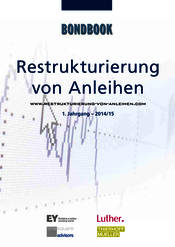Fitch Ratings says that the commitments agreed by euro area Heads of State represent an important and positive step towards securing financial stability in the euro zone.
A more unified and coherent policy response to the Greek crisis and broader financial instability across the euro zone eases near-term pressure on sovereign credit profiles and ratings across the region. However, until there is a sustained and broad-based economic recovery across the region, allied with continued progress on reducing outsized government budget deficits and structural reforms to enhance long-term potential growth, further episodes of financial market volatility cannot be discounted and downward pressure on sovereign ratings will persist.
"The commitments made by euro area leaders at yesterday's Summit represent an important and positive step towards securing financial stability in the euro zone," said David Riley, Head of Sovereign Ratings at Fitch.
The greater operational flexibility of the EFSF (and its successor from mid-2013, the ESM), combined with the previous commitment to increase its net lending capacity to EUR440bn will, in Fitch's opinion, materially enhance its effectiveness in supporting financial stability in the euro zone. The decision to provide a new EUR109bn EU-IMF loan programme for Greece at lower interest rates and extended maturities and to provide clarity on private sector involvement (PSI) will also support financial stability across the region as well as in Greece ('CCC').
The PSI in a new EU-IMF programme of financial support for Greece, as described in the Institute for International Finance (IIF) proposal issued at the Summit will, in Fitch's opinion, constitute an event of 'Restricted Default' (RD). According to the IIF, the proposed debt exchange implies a 20% net present value loss for banks and other holders of Greek government debt. An exchange that offers new securities with terms that are worse than the original contractual terms of the existing debt and where the sovereign is subject to financial distress constitutes a default event under Fitch's 'Coercive Debt Exchange Criteria'.
In line with the rating approach outlined by the agency on 6 June 2011 (see 'Fitch Outlines Rating Approach to a Sovereign Debt Exchange' at <link typo3 www.fitchratings.com>www.fitchratings.com), Fitch will place the Greek sovereign (issuer) rating into 'Restricted Default' and assign 'Default' ratings to the affected Greek government bonds on the date that the offer period for the proposed debt exchange closes. Fitch will assign new post-default ratings to Greece and to the new debt instruments once the default event is cured with the issue of new securities to participating bondholders. Along with other relevant factors, the extended maturity structure and reduction in the net present value of the Greek public debt stock will be reflected in the new post-default sovereign rating that will be assigned to Greece and its debt instruments on completion of the exchange. The new ratings will likely be low speculative-grade.
"Fitch considers the nature of private sector involvement in a new financial programme of support for Greece to constitute a Restricted Default event. However, the reduction in interest rates and extension of maturities potentially offers Greece a window of opportunity to regain solvency, despite the formidable challenges that it faces," added Riley.
The decision to reduce the cost and extend the maturity of EFSF loans is supportive for the public debt dynamics and sovereign credit profile of Ireland ('BBB'/Negative) and Portugal ('BBB-'/Rating Watch Negative). The principal focus of Fitch's sovereign credit analysis and driver of its rating opinions for both countries will continue to be the outlook for economic recovery and progress in placing public finances on a sustainable path. Fitch notes the declaration by European leaders that the nature of PSI as part of a new EU-IMF programme for Greece is an "exceptional and unique solution". Nonetheless, if the Irish and Portuguese economies and public finances are not firmly on a sustainable path going into 2013, when both will need to regain access to medium-term market funding, the potential precedent set by PSI in the Greek package will be incorporated into Fitch's assessment of the risks to bondholders and reflected in its sovereign rating opinions and actions.














